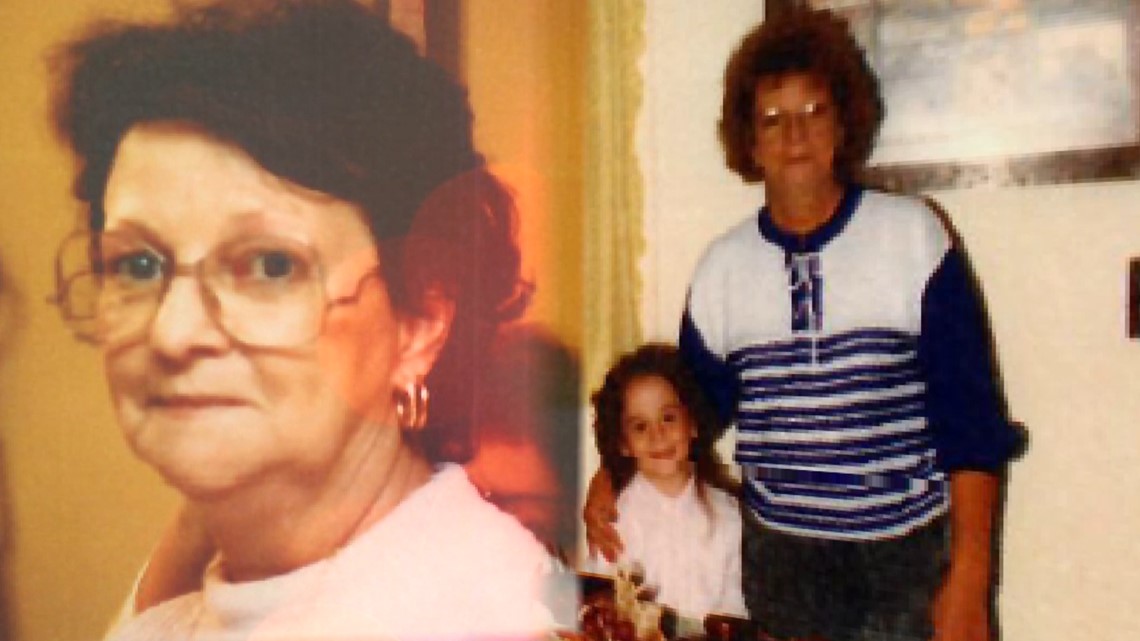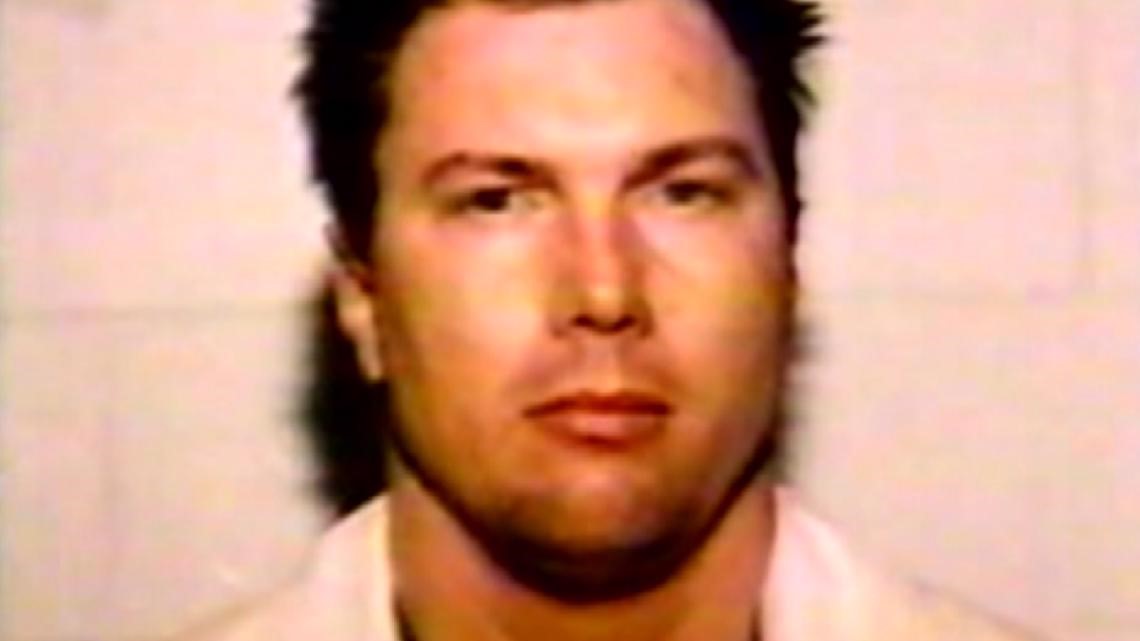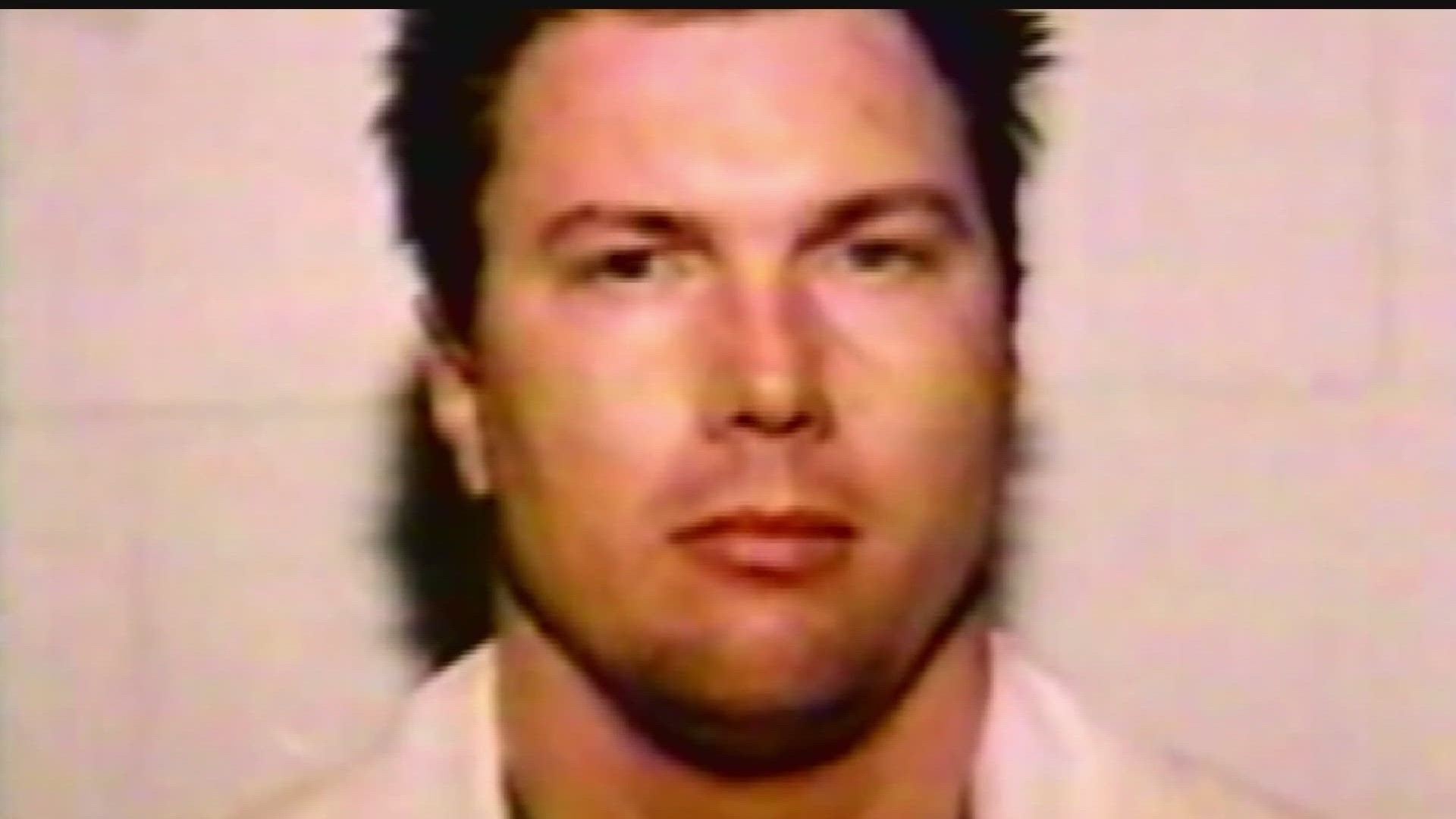GWINNETT COUNTY, Ga. — For decades, despite his murder conviction, former Gwinnett County Police Department officer Michael Chapel has maintained that he is innocent in the 1993 killing of a woman. As his attorney petitions for his innocence - a lie detector test on a key witness could support his claim.
The witness who recently came forward to purport Chapel's innocence has passed a polygraph test, according to Chapel's defense team.
Chapel has spent the last three decades in prison for the murder of 53-year-old Emogene Thompson, who was found shot dead in her car in April 1993. Her purse, containing thousands of dollars, had been taken from the vehicle.
Chapel was an officer for the Gwinnett County Police Department at the time of the murder. He had previously interacted with Thompson when he responded to a theft call at her home. Prosecutors argued Chapel gained Thompson's trust over the following days and murdered her to rob her of the remaining cash.


Gwinnett County officer maintains his innocence
Several post-conviction appeals and filings on Chapel's behalf in the decades since have failed. Local author Henry Ball published a book titled Michael Chapel, which outlined an argument for Chapel's innocence. The book, and a podcast released in 2022 titled In the Land of Lies (for which Ball was a consulting producer), resulted in a groundswell of support for Chapel. A Facebook group titled Michael Chapel is Innocent has nearly 8,000 members today.


Ball, with financial support from many in the group, launched a 501c3 nonprofit called FIGHT: Falsely Incarcerated Getting Help Today. The funds were used to retain a new defense attorney for Chapel. That attorney, Billy Rennie from Athens, recently filed a habeas corpus petition asserting his client's innocence.
"In order for habeas to succeed, we have to be able to show that Mike's constitutional rights were violated, and we believe we can," Rennie told 11Alive in January. "We have found information through our review of evidence and also through some witnesses who have come forward recently."
Contradicting testimony and evidence
Rennie said perhaps the most compelling piece of evidence in the habeas was witness testimony they'd obtained from a man named Jermaine Rogers, who came forward to vow he saw another GCPD officer kill Thompson that night in 1993, not Chapel.
However, 11Alive Investigator Savannah Levins found a taped interview with Rogers from 1994 in the unsealed evidence boxes. In that interview, Rogers didn't say anything about witnessing the murder firsthand. He also named Chapel as being involved in nefarious dealings.
Ball admitted the tape, which appeared to contradict Rogers' testimony in the habeas directly, raised valid concerns.
"Seeing it was very disconcerting," Ball said. "It really led me to the conclusion that I needed to affirm that what he was telling me was the truth. I needed to know if this man was lying to me."
No deception detected
Using funds donated to FIGHT, Ball scheduled Rogers to be questioned by APA- and GPA-certified polygraph professionals of North Georgia.
Rogers was asked several questions, including whether he saw another officer who wasn't Chapel commit the murder, as he claimed in the habeas. Rogers responded in the affirmative.
11Alive is not naming that officer since the claims linking them to the murder have not, to this point, been substantiated in a court of law, and no charges were ever filed against them. The officer died by suicide days after Thompson's murder.
Rogers was also asked if he saw Michael Chapel at the murder scene. He responded no.
He also responded in the affirmative when asked if GCPD detectives coerced him to make false statements against Chapel. In short, Rogers signaled that he was coerced to lie.
The report, provided by FIGHT, states there were no physiological responses indicative of deception.
"It coincides with what he told us for the habeas," Ball said. "So, in my view, we always had corroborating evidence of his story. But I now have scientific proof, if you will, that he's telling the truth."
Can this polygraph test help?
The test isn't a smoking gun.
Georgia courts do not generally accept polygraph test results as evidence. There are some exceptions, like in instances where all parties agree that the results of the test can be used. So it's unlikely Rogers' polygraph, conducted three decades after the crime, will be considered admissible as the habeas proceedings move forward.
Ball said it does renew his confidence in Rogers as a witness and in Chapel's innocence.
"I feel even stronger about the habeas and about the work that Billy Rennie is doing," he said. "It's time for Mike to have his day in court and for the judge to look at all of the evidence and make a ruling - and I believe that will be very positive for Michael Chapel."
A date has not yet been set for the habeas. Rennie said they are completing their argument, which includes forensic analysis, and that they're hopeful the hearing will scheduled in the spring of 2024.
"Everybody is really optimistic that we're going to get in front of the judge very soon," Ball said. "There's some anxiety about this being Mike's last chance. But I do believe it's his best chance."

